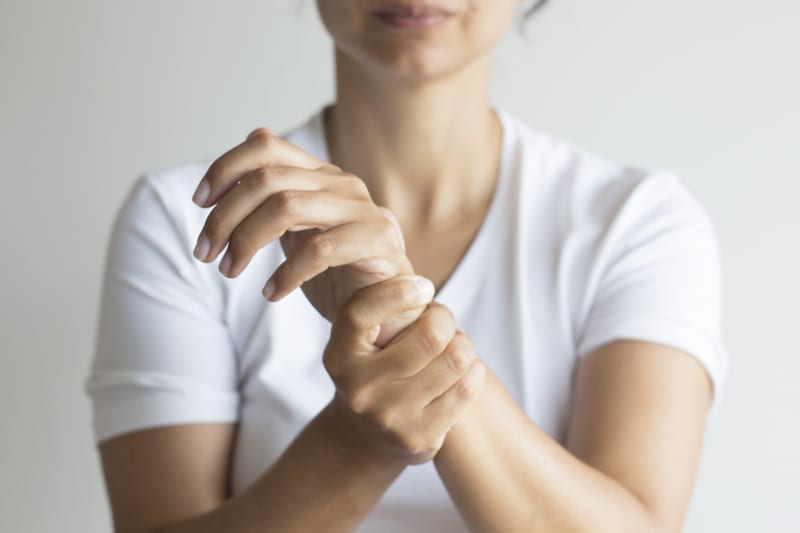There are more than 250 million ski and snowboard enthusiasts worldwide and accidents such as falls, collisions or ski lift related injuries are regular occurrences at alpine resorts all over the world.
Skiing, as much as we love it, is a bit of a strange sport; you encase your feet in rigid, close fitting toughened plastic boots, strap two planks to them and hurl yourself down a mountain. Is it any wonder that the rescue sleds are so busy every day of every ski season in nearly every alpine resort?
We hope it does not happen to you but this series of blogs will help get you on the right track if it does!
The 3 wrist injuries you’ll likely suffer
Wrist and hand injuries are very common when skiing, in particular with beginner and novice skiers. One of the most common injuries is known as “skier’s thumb”, which is sometimes also referred to as “gamekeeper’s thumb” and is the result of falling onto an outstretched hand which we tend to do automatically to reduce the force of the impact; this can lead to the thumb getting sprained and stretched. This can cause tearing of one of the ligaments around the thumb (usually the ulnar collateral ligament) that can be particularly troublesome, as, in some cases, it cannot heal very well. It is vital that you seek medical attention immediately if you feel you have injured your thumb and it becomes painful or swollen after a fall.
Tendonitis is another frequently seen wrist injury. There are many tendons that travel on all sides of the wrist; they are very vulnerable when we fall onto an outstretched hand at high speed to becoming over-stretched and subsequently painful. Typically you will see some swelling and redness with pain on movements of the wrist. Generally these should settle well but it is important that you seek the advice of a medical professional if the pain is severe and movement becomes limited after the fall.
Wrist and finger fractures are also very prevalent, particularly in the older generation where the bones may not be as dense or strong as when you are younger. These can involve any of the bones in your finger or wrist when the joints are bent back after falling at a high speed. These will need to be reviewed by a medical professional as fractures can result in longstanding pain and loss of movement, and will be particularly troublesome if they occur in your dominant hand.
Our 5 Tips if you get injured:
1/ Most soft tissues injuries and some breaks do not need an immediate operation. It is often best to wait, get safely back to the UK and then start investigating all the options.
2/ Call your insurance – inform them of the situation. Don’t delay or you may not be covered.
3/ If you get X-rays, scans or other tests carried out whilst you are away – get a copy of the results. For example, if you get an X-ray take a photo of it on your phone. The more information you get the better.
4/ Get a specialist – unless it is a medical emergency you don’t want a hip surgeon operating on your shoulder or a knee surgeon operating on your wrist. Get a specialist!!
5/ Email one of our clinic directors at info@complete-physio.co.uk – we work with world leading clinicians and surgeons and are happy to put you in touch with the most appropriate one for you.
Don’t let pain hold you back, book now!


